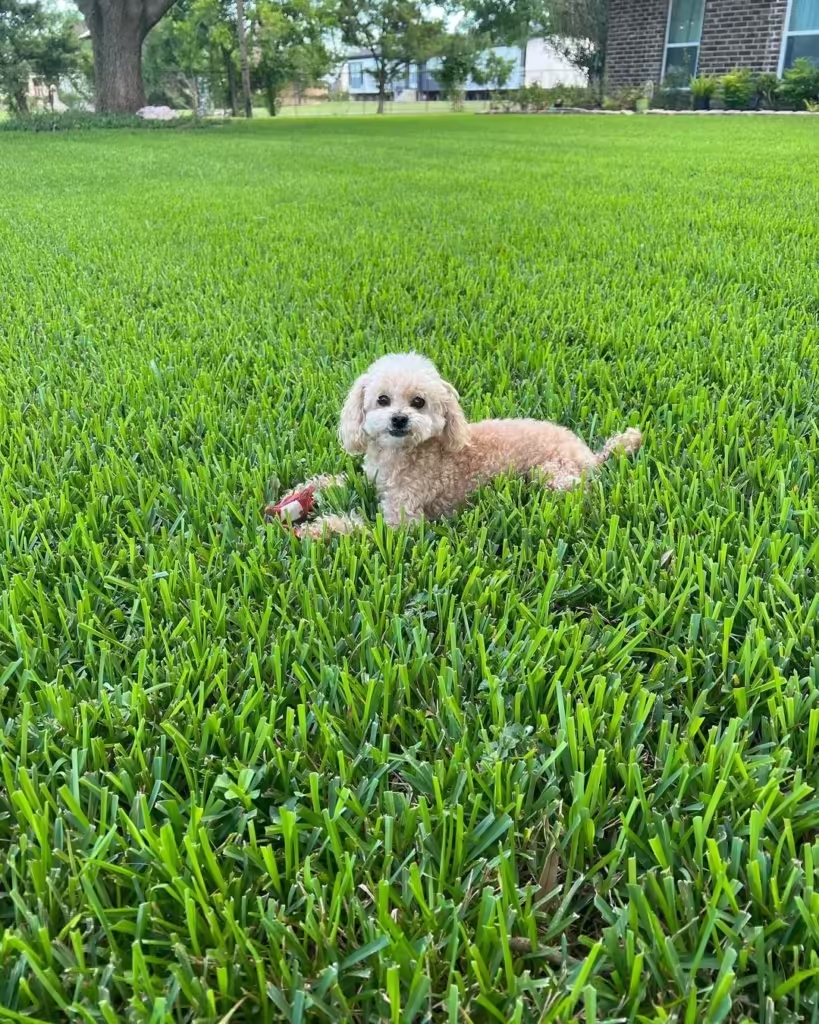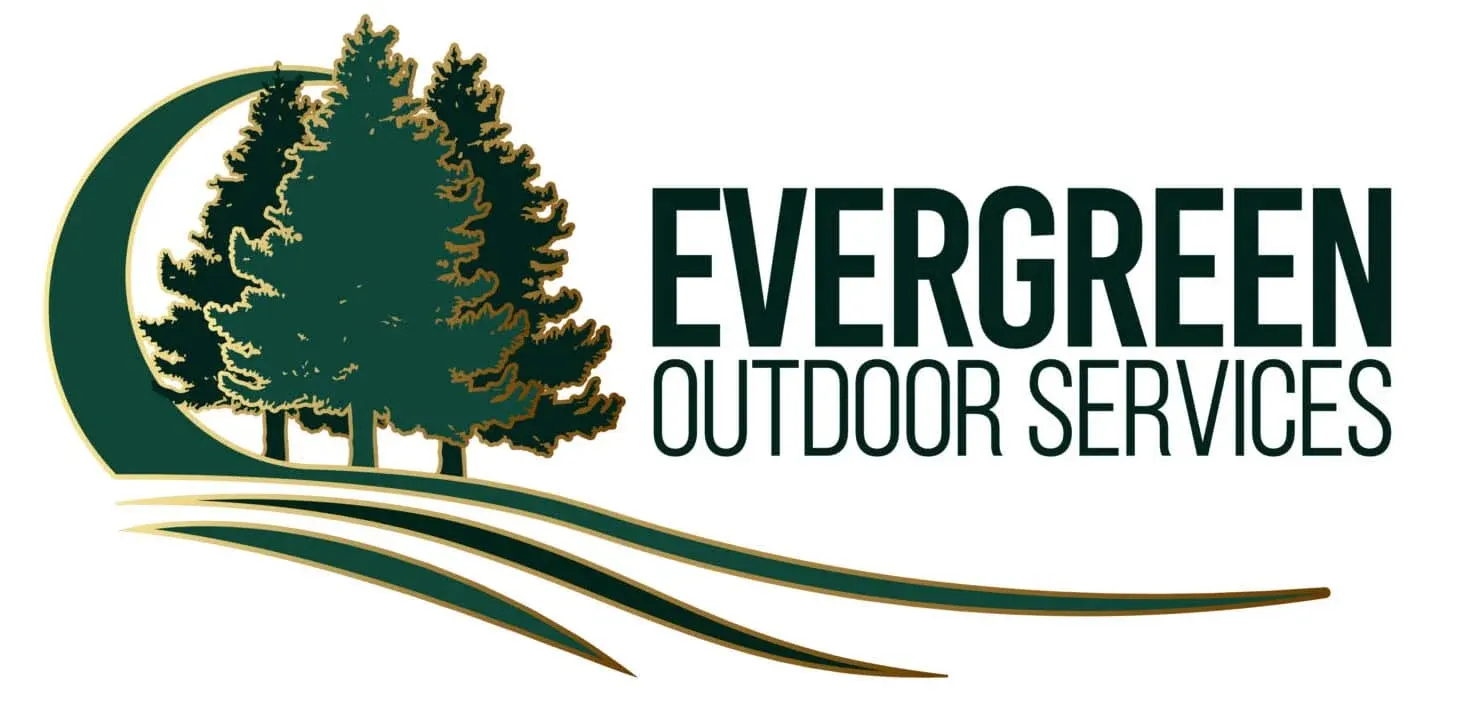Houston homeowners know the struggle — clay-heavy native soils that compact easily, hold water too long in the wet months, and crack like crazy during summer heat. Eco-friendly soil conditioning offers a natural solution to restore balance and improve lawn health. For new construction homes, it’s often worse: builders strip away topsoil, leaving hard subsoil that starves grass roots.
This isn’t just an aesthetic problem; poor soil structure keeps grass from growing deep and healthy. The good news? You can create a lush, resilient lawn without dumping chemicals on your yard. By using eco-friendly soil conditioning in Houston, you improve soil biology, feed its microbes, and build a foundation for long-term lawn health.
At Evergreen Outdoor Services, we believe every lawn is unique. We don’t just “mow and go.” We assess your soil, choose the right natural amendments, and customize a plan for your property. Here’s how we do it — and how you can start improving your soil naturally.

Why Healthy Soil Matters (and a Quick Note on Peat Moss)
Houston lawns already face enough challenges — compacted clay soil, scorching summers, and occasional flooding. Healthy soil is like your lawn’s immune system: it keeps grass strong, resilient, and less dependent on constant watering and fertilization.
If you’ve heard of peat moss as a soil additive, here’s the quick truth: we don’t recommend it. It’s not very sustainable to harvest, and it doesn’t break down in your soil the way compost does — meaning it won’t really help you build healthier soil over time.
Tips for Healthier Soil
-
Use leaf-aged mold compost: Adds organic matter, improves texture, and feeds beneficial microbes.
How to do it: Spread a thin ¼–½ inch layer over the lawn in spring or fall, then water lightly to help it settle in. -
Apply trace minerals or organic micronutrients: These replenish your soil’s nutrient profile and support healthy root development.
How to do it: Choose a slow-release granular product and apply evenly with a spreader once or twice a year. -
Aerate naturally: Encourage earthworm activity or schedule professional core aeration to break up compaction.
How to do it: Aerate in early spring or fall, when grass is actively growing, for best results.
Local Example: Last fall, we worked with a Summerwood homeowner whose soil was so compacted that rainwater puddled for hours. After aeration and topdressing with compost, the lawn drained beautifully within weeks. For more on why this works, check out our post on Houston’s Rainy Summer Lawncare Survival Guide.
Perlite, Vermiculite & Worm Castings | The Triple Threat for Clay Soil
Clay-heavy and stripped soils in new builds can suffocate grass roots. According to Texas A&M AgriLife, compacted soil can reduce root growth by up to 50%. Adding amendments like perlite and vermiculite helps loosen up the soil, letting air, water, and nutrients move freely. And don’t underestimate earthworms — they’re nature’s best soil helpers.
Tips to Improve Clay Soil Naturally
-
Add perlite: Improves drainage and aeration — perfect for dense, wet soils.
How to do it: Rake perlite into the top few inches of soil before overseeding or topdressing. -
Use vermiculite carefully: Holds moisture while still improving soil texture, making it great for dry areas.
How to do it: Blend into planting beds or thinly layer across bare spots before reseeding. -
Encourage worm activity: Worms naturally aerate your soil and fertilize it as they move.
How to do it: Keep your lawn mulched and moist — worms thrive in an organic-rich environment. -
Apply worm castings: Packed with beneficial microbes and nutrients, they act like a slow-release fertilizer.
How to do it: Broadcast a thin layer (about ¼ inch) over the lawn, or mix into garden beds once or twice a year.
Local Example: In Crosby, we improved a homeowner’s compacted back lawn by mixing compost and perlite before overseeding. Within one season, grass coverage improved by 40%. Learn more in our post on Lawn Estimates vs. Lawn Evaluations.

Lawn Health | Eco-friendly soil conditioning Houston
Think of your soil as a living community. The bacteria, fungi, and tiny organisms in it break down organic matter and release nutrients that feed your grass — naturally.
Tips to Build a Healthy Soil Microbiome
-
Topdress with compost once a year: Adds food for microbes and improves soil structure.
How to do it: Do this in early spring or fall, and follow with a light watering. -
Add trace minerals: Encourages a balanced soil environment and improves nutrient uptake.
How to do it: Test your soil first, then apply based on recommendations to avoid overdoing it. -
Use organic fertilizers sparingly: Feed the soil, not just the grass.
How to do it: Look for products with natural sources like fish emulsion or composted manure. -
Water deeply but not too often: Helps roots grow deeper and keeps microbial life active.
How to do it: Aim for 1–1.5 inches of water once or twice a week, adjusting for rainfall.
Local Example: One of our Montrose clients had patchy, yellowing grass despite regular fertilization. We applied compost and trace minerals, then monitored microbial activity. Within two months, the lawn was greener and healthier with fewer inputs. See also How Houston Water Restrictions Affect Your Lawn for watering tips.
FAQ | Eco-Friendly Soil Conditioning
Q1: Is perlite safe for the environment?
Yes — perlite is a naturally occurring volcanic glass that’s expanded using heat. It’s safe and won’t harm your soil or groundwater.
Q2: Can I just add worms to my lawn?
Yes, but the key is creating the right environment with compost and moisture so they stick around and stay active.
Q3: Do I still need to aerate if I use compost and worm castings?
Yes, aeration once or twice a year gives roots a jumpstart. Compost and worms help keep it that way between aerations.
Q4: What’s the best time to topdress with compost in Houston?
Early spring or early fall — when grass is actively growing — gives the best results.
Ready to Build Healthier Soil?
Improving your lawn’s soil isn’t a one-time project — it’s an ongoing partnership with nature. At Evergreen Outdoor Services, we specialize in tailored lawn care plans that consider your soil’s unique challenges, especially for new construction homes. If your grass is struggling, schedule a lawn health assessment with us and let’s get your soil back in shape with eco-friendly soil conditioning in Houston.
Related Post: Why Topdressing is the Secret to a Lush Lawn
External Resource: Texas A&M AgriLife Extension: Improving Clay Soils
